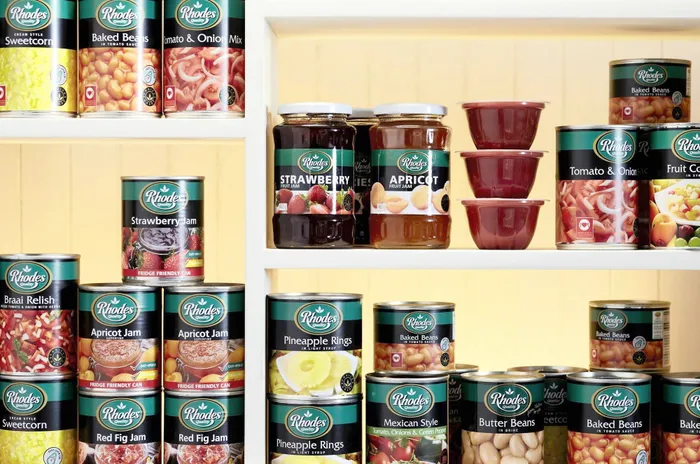RFG Holdings reports strong regional growth and maiden interim dividend
Food production

RFG Holdings, which owns the Rhodes fruit foods brands, declared a maiden dividend for the six months to March 31, 2025:
Image: : Simphiwe Mbokazi/African News Agency (ANA)
RFG Holdings, the Western Cape food producer, said sales volumes recovered well in its regional business for the six months to March 2025, and an amended dividend policy sees it paying out a maiden interim dividend of 29.6 cents per share.
Regional revenue was up 7.6% despite pressure on consumer spending in the domestic market.
Group revenue increased 3.5% to R4bn, tempered by a weaker performance of the international business due to subdued global demand for deciduous fruit products.
The group that owns market-leading brands Rhodes, Bull Brand, Magpie, Squish, Hinds, and Today increased regional operating profit by 4.9% to R343 million. Difficult global market conditions meant the international operating profit was R73m lower, which contributed to the group’s operating profit declined by 13.9% to R343m. Headline earnings were 11.9% lower at R231m.
Debt levels reduced by 30% and the net debt-to-equity ratio improving to 22% from 33.3%. Cash generated from operations increased by R248m to R343m.
The directors' confidence in the group cash-generating ability was evidenced by the commitment to declare both an interim and a final dividend each year, a statement said Wednesday.
CEO Pieter Hanekom said the growth in the regional business, which accounted for 87% of group revenue, was driven by volume growth of 9.9%. Within the regional segment, fresh foods increased revenue 8.3% and long-life foods by 7.2%.
The fruit juice, herbs and spices, and pulps and purees categories delivered double-digit revenue growth.
“Growth was supported by a focus on product and packaging innovation, notably the launch of the Rhodes fruit nectar juice range,” said Hanekom.
RFG claimed continued market share gains in key product categories. The group brands are market leaders in canned meat (Bull Brand), canned tomato (Rhodes), and frozen pies and pastry (Today). The Rhodes brand also claims the number two position in fruit juice, canned fruit, jam, canned vegetables, and baby food, with Hinds the number two brand in spices, herbs, and pepper.
International revenue, comprising 13% of total revenue, fell 17.2% mainly due to weaker global demand and shifting market dynamics. Several canned deciduous fruit contracts were not honoured by customers, and product was redirected to alternative markets where it was sold at lower prices.
The delay in securing new customers further contributed to an 11.7% decline in export volumes. This was compounded by a shortage of canned pineapple stock due to the drought conditions in Eswatini.
Hanekom said the trading momentum in the regional business would likely continue into the second half. “Product and packaging innovation will be key to growing our brand share and expanding into new product categories,” he said.
Rising global tensions and escalating geopolitical risks had heightened uncertainty across international markets. “This ongoing instability has also negatively impacted South Africa’s macroeconomic outlook and slowed the country’s economic recovery.”
The oversupply of deciduous fruit products in international markets was creating pressure on volumes and pricing.
“Fortunately, exports of our deciduous fruit products are gaining momentum, and this should support higher international revenue in the second half of the year,” he said.
Hanekom said the group was geared to manage the significant increase expected in trade tariffs on exports to the US and was proactively exploring emerging opportunities in other markets to mitigate the possible impact of higher tariffs.
Capital investment of R430m was planned for the upgrading and maintenance of its production facilities across South Africa and Eswatini for the financial year.
Visit: www..businessreport.co.za